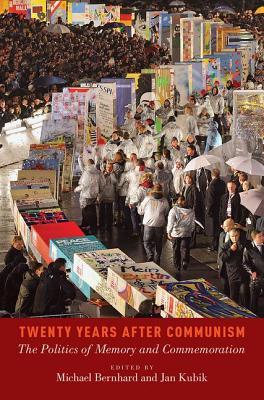(Ebook) Twenty Years After Communism: The Politics of Memory and Commemoration by Michael Bernhard; Jan Kubik ISBN 9780199375134, 0199375135
While the fall of the Berlin Wall is positively commemorated in the West, the intervening years have shown that the former Soviet Bloc has a more complicated view of its legacy. In post-communist Eastern Europe, the way people remember state socialism is closely intertwined with the manner in which they envision historical justice.
Twenty Years After Communismis concerned with the explosion of a politics of memory triggered by the fall of state socialism in Eastern Europe, and it takes a comparative look at the ways that communism and its demise have been commemorated (or not commemorated) by major political actors across the region.
The book is built on three premises. The first is that political actors always strive to come to terms with the history of their communities in order to generate a sense of order in their personal and collective lives. Second, new leaders sometimes find it advantageous to mete out justice on the politicians of abolished regimes, and whether and how they do so depends heavily on their interpretation and assessment of the collective past. Finally, remembering the past, particularly collectively, is always a political process, thus the politics of memory and commemoration needs to be studied as an integral part of the establishment of new collective identities and new principles of political legitimacy. Each chapter takes a detailed look at the commemorative ceremony of a different country of the former Soviet Bloc. Collectively the book looks at patterns of extrication from state socialism, patterns of ethnic and class conflict, the strategies of communist successor parties, and the cultural traditions of a given country that influence the way official collective memory is constructed.
Twenty Years After Communismdevelops a new analytical and explanatory framework that helps readers to understand the utility of historical memory as an important and understudied part of democratization.
*Free conversion of into popular formats such as PDF, DOCX, DOC, AZW, EPUB, and MOBI after payment.


